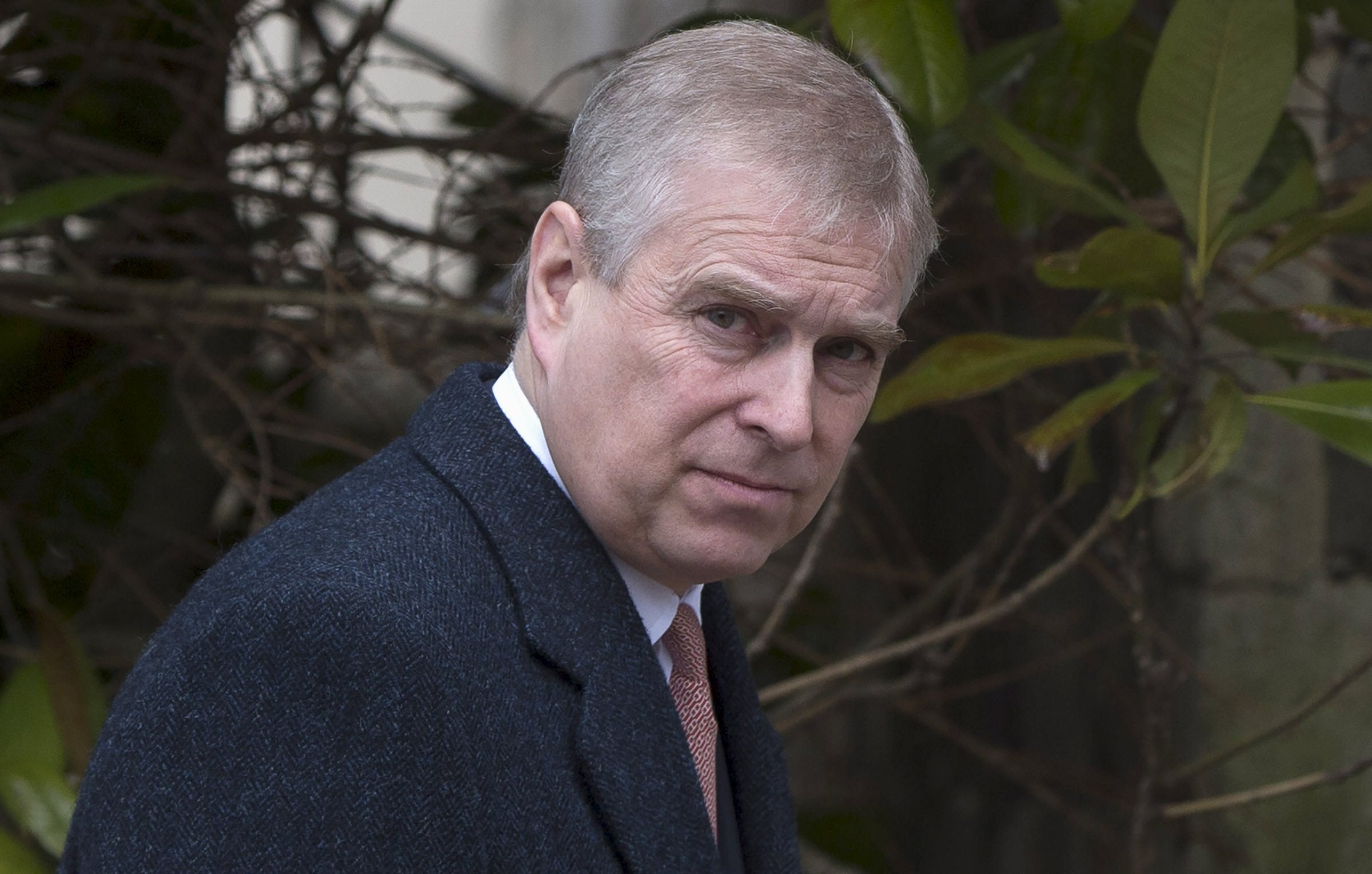Jeffrey Epstein’s vague deal with Virginia Giuffre could spell success for Prince Andrew, expert says
The 2009 deal between the late paedophile and Ms Giuffre was unsealed by a judge in New York on Monday

A secret settlement deal between Jeffrey Epstein and Virginia Roberts Giuffre could help Prince Andrew secure a dismissal of her sexual abuse case against him – but it all comes down to the judge.
The 2009 deal between the late paedophile and Ms Giuffre was unsealed by a judge in New York on Monday, revealing she was paid $500,000 to settle all of her claims.
The settlement, which does not mention Prince Andrew by name, provided a release for “any other person or entity who could have been included as a potential defendant” against Ms Giuffre’s claims.
According to journalist and lawyer Lucia Osborne-Crowley, the vague language in the settlement could spell success for Prince Andrew, who is seeking to have Ms Giuffre’s sexual assault civil suit against him thrown out.
“It is very possible that the settlement agreement between Virginia Roberts and Jeffrey Epstein protects Prince Andrew,” Ms Osborne-Crowley told The Independent.
“That’s because the language in the settlement is very broad – it says that any third party that could be considered a ‘potential defendant’ in the Epstein lawsuit will be ‘forever’ shielded from any and all claims brought by Ms Roberts.
“It also specifically says that all potential defendants are protected from all lawsuits regardless of whether they are brought in federal or state court.”
The lawyer explained: “American law treats settlement agreements in civil lawsuits no differently to any other private contract – that means that whatever the two parties agree, and put into a contract that they sign, usually binds them.
“So if the judge rules that Prince Andrew falls into the category of a ‘potential defendant’, it’s likely that the deal will protect him.”
However, US District Judge Lewis Kaplan does have some leeway in handing down a ruling, Ms Osborne-Crowley said.
“For example, he could interpret ‘potential defendant’ very narrowly, and take it to mean someone who could be a defendant in the specific factual allegations against Epstein, in which case he could exclude Prince Andrew,” she said.
“Also, it’s worth noting that Virginia Roberts successfully sued and settled a case against Ghislaine Maxwell in 2017 – so clearly Maxwell was not found to be protected by this clause, if it was raised. Those documents remained sealed.
“In other words, this is not a done deal. There is definitely a legal argument to be had, so it will all depend on what Judge Lewis decides.”
Ms Giuffre alleges she was forced to have sex with Prince Andrew in London and at two of Epstein’s properties when she was 17 years old.
Andrew, 61, has strongly denied the claims and a hearing on his motion to dismiss the case is scheduled for Tuesday morning in New York.
If the case moves forward, the Duke of York could be forced to sit for a deposition under oath turn over decades of private communications during discovery.
Andrew’s attorney Andrew B Brettler has previously argued the civil case should be dismissed as the 2009 settlement absolved him of any liability.
Judge Kaplan has said a trial could begin between September and December of 2022 if no settlement is reached.
Andrew’s former associate Ghislaine Maxwell was found guilty of five charges of grooming and trafficking teenage girls between 1994 and 2004 in a separate federal criminal trial last week.
Ms Giuffre’s claims did not form a part of the prosecution case in Maxwell’s trial.
The 38-year-old mother of three, who has lived in Australia for more than a decade, is suing Andrew for emotional distress and battery.
Andrew’s spokesperson told The Independent they had no comment about the unsealing of the 2009 document.
The 12-page settlement states that Ms Giuffre: “Hereby remise, release, acquit, satisfy, and forever discharge the said Second Parties and any other person or entity who could have been included as a potential defendant from all, and all manner of, action and actions of Virginia Roberts, including State and Federal, cause and causes of action (common law or statutory), suits, debts, dues, sums of money, accounts, reckonings, bonds, bills... and demands whatsoever in law or in equity for compensatory or punitive damages that said First Parties ever had or now have.”
It is understood that Andrew will claim he falls within the category of “other potential defendants” because Ms Giuffre had identified him as one of her alleged abusers at the time she entered into the 2009 settlement agreement.
She also specifically referred to “royalty” in her 2009 lawsuit against Epstein.
According to a report in The Sunday Times, royal courtiers are in discussions about what to do if Andrew loses the civil suit launched by Ms Giuffre – previously Roberts – in September 2021, which alleges that she was forced to have sex with the duke three times while she was being abused by Epstein.
The source was also quoted as saying that Andrew would be asked to give up his remaining patronages to charities and would not be able to go abroad due to the “risk of extradition”, which would result in “a form of internal exile”.
A Buckingham Palace spokesperson said the comments were “without foundation”.



